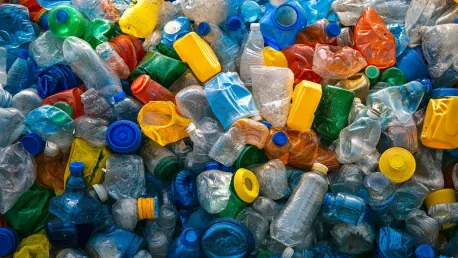Businesses worldwide are being urged to proactively address plastic pollution in response to increasingly stringent global plastics legislation. As negotiations for a global plastics treaty continue, companies must act now to avoid severe financial liabilities and maintain their competitive edge.
SAP, along with Earth Action, launched the “Shift into Gear” report, emphasizing the critical need for businesses to start preparing for looming global plastics legislation. Companies face threats of financial repercussions, including fines, litigation, and clean-up costs, along with reputational risks if they fail to adapt to evolving regulations.
Financial and Reputational Risks
Non-compliance with plastic regulations can lead to hefty fines, sales bans, and mandatory product recalls, impacting a company’s financial stability. Beyond the immediate financial implications, companies risk suffering from diminished investor confidence and reputational damage associated with environmental harm and consumer protection violations. The urgency to comply has never been greater, with extended producer responsibility (EPR) regulations increasingly emphasizing eco-design and recyclability.
Complex Compliance Landscape
Navigating the intricate web of national and regional regulations poses significant challenges. The European Union’s Packaging and Packaging Waste Regulation (PPWR) and the Corporate Sustainability Reporting Directive (CSRD) are prime examples of existing stringent requirements companies must meet. These regulations compel businesses to rethink their packaging strategies and adopt sustainable practices to mitigate financial penalties.
SAP’s “Shift into Gear” Report
The “Shift into Gear” report provides crucial insights into preparing for plastics legislation. SAP calls for the establishment of common definitions for plastics, harmonization of criteria across the plastics lifecycle, and implementation of national disclosure schemes to ensure uniformity and transparency. The report highlights the critical role of digital tools in traceability and compliance, underscoring the need for standardized data exchange mechanisms throughout supply chains.
Leveraging Digital Tools
Enterprise Resource Planning (ERP) systems and financial reporting platforms harbor valuable data essential for managing plastic compliance. Companies can optimize their compliance efforts by leveraging these tools to aggregate data from third-party sources, calculate fees accurately, and explore alternative materials and supply chains. SAP Responsible Design and Production exemplifies such systems, aiding sustainability managers in making informed, data-driven decisions.
Preparing for the Future
Businesses cannot afford to wait for a finalized global plastics treaty slated for approval soon. Early adopters of compliance measures will gain a competitive edge, effectively navigating the evolving regulatory landscape. By integrating robust data management solutions and fostering data-sharing among supply chains, companies will enhance their sustainability efforts and achieve compliance.
Companies that invested in their ERP systems and collaboration initiatives reaped substantial benefits. They minimized costs, met sustainability targets, and ensured full compliance with the impending regulations. The “Shift into Gear” report has highlighted the urgency for businesses to adapt swiftly, emphasizing that proactive measures are not only advisable but imperative for thriving in this new era of plastic regulation.









